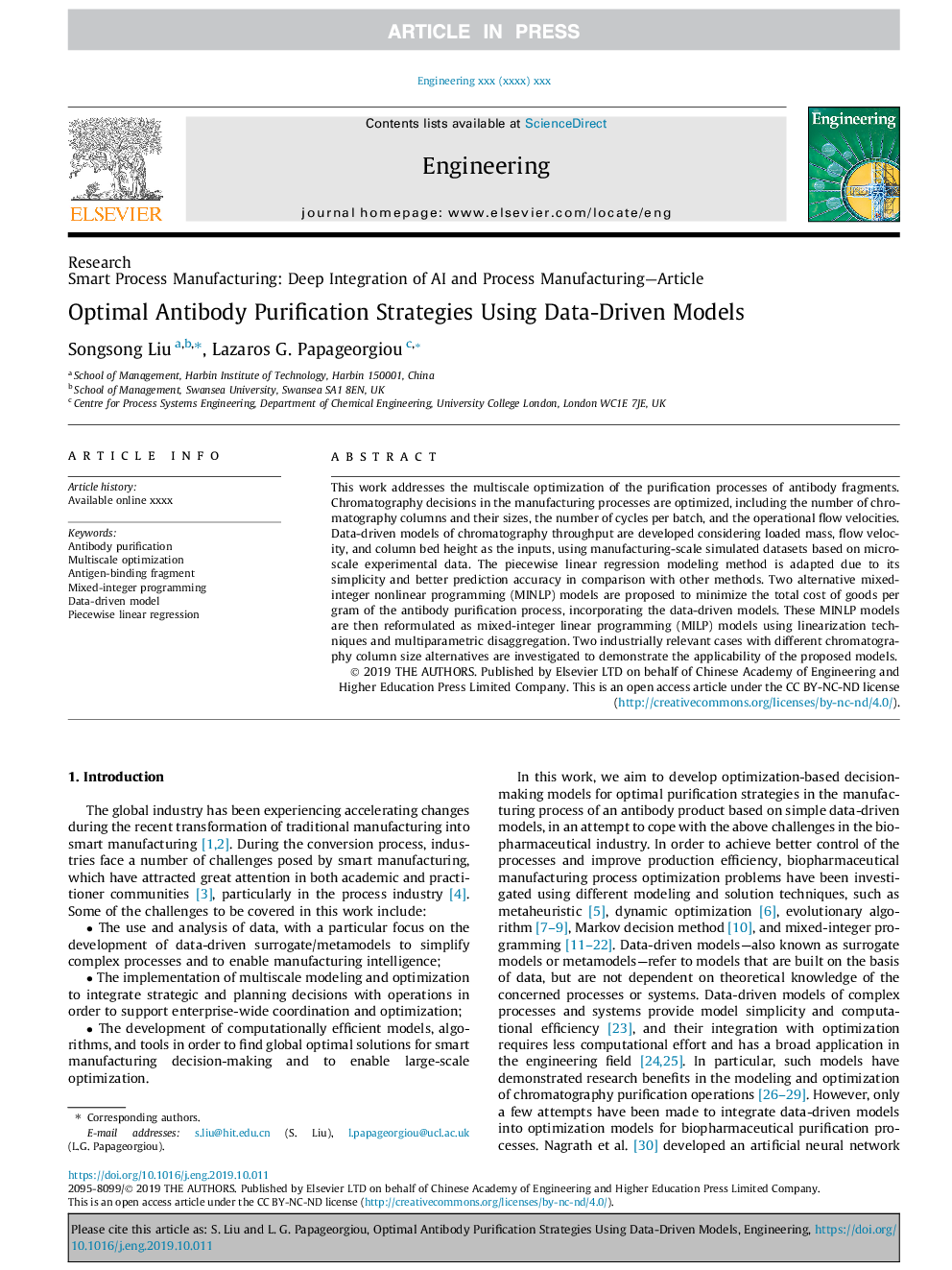| Article ID | Journal | Published Year | Pages | File Type |
|---|---|---|---|---|
| 13433314 | Engineering | 2019 | 16 Pages |
Abstract
This work addresses the multiscale optimization of the purification processes of antibody fragments. Chromatography decisions in the manufacturing processes are optimized, including the number of chromatography columns and their sizes, the number of cycles per batch, and the operational flow velocities. Data-driven models of chromatography throughput are developed considering loaded mass, flow velocity, and column bed height as the inputs, using manufacturing-scale simulated datasets based on microscale experimental data. The piecewise linear regression modeling method is adapted due to its simplicity and better prediction accuracy in comparison with other methods. Two alternative mixed-integer nonlinear programming (MINLP) models are proposed to minimize the total cost of goods per gram of the antibody purification process, incorporating the data-driven models. These MINLP models are then reformulated as mixed-integer linear programming (MILP) models using linearization techniques and multiparametric disaggregation. Two industrially relevant cases with different chromatography column size alternatives are investigated to demonstrate the applicability of the proposed models.
Keywords
Related Topics
Physical Sciences and Engineering
Computer Science
Computer Science (General)
Authors
Songsong Liu, Lazaros G. Papageorgiou,
